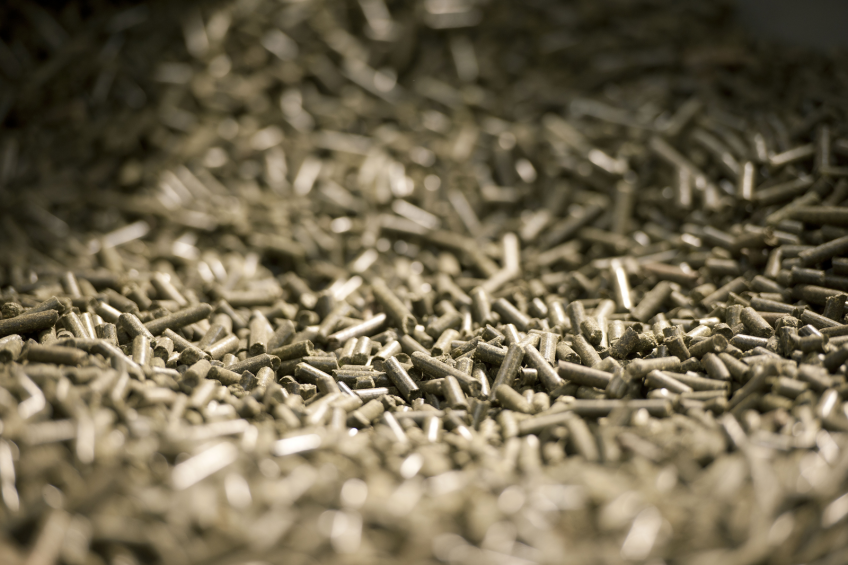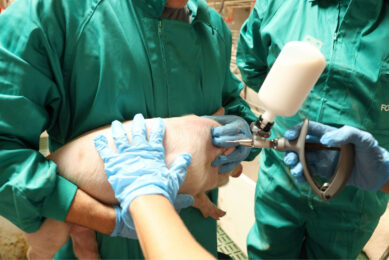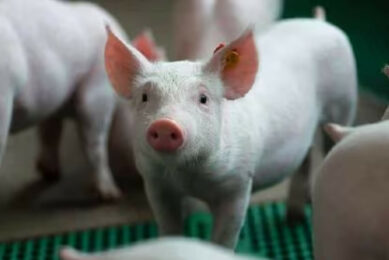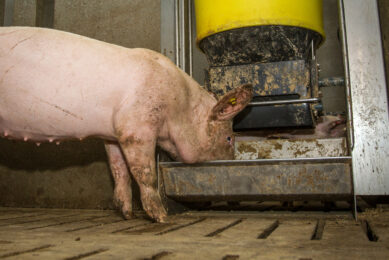More energy in pig diets after pelleting and extrusion

A team of international scientists, using co-products from the ethanol and human food industries, helped shed light on ways in which processing of high-fibre animal feed ingredients can enhance pigs’ utilisation of the nutrients and energy they contain.
The co-products from these industries typically contain more fibre than the standard corn-soybean meal diet. The latest report appeared in a contribution in the Journal of Animal Science.
On the website of the Monogastric Nutrition Laboratory, Hans H. Stein, professor of animal sciences at the University of Illinois, United States, said, “It is possible that the benefits of extrusion and pelleting are greater in high-fibre diets than in low-fibre diets. We set out to test that hypothesis.”
Effects of extrusion, pelleting or both
Stein and his team tested effects of extrusion, pelleting, or extrusion and pelleting using a low-fibre diet based on corn and soybean meal, a medium-fibre diet containing corn, soybean meal, and 25% distillers dried grains with solubles (DDGS), and a high-fibre diet containing corn, soybean meal, 25% DDGS, and 20% soybean hulls.
Each diet was divided into four batches. One batch was fed in meal form, one was pelleted at 85°C, one was extruded at 115°C, and the fourth was extruded at 115°C and then pelleted at 85°C.
Increasing the digestibility of indispensable AA
Regardless of the concentration of fibre in the diet, pelleting, extrusion, and pelleting plus extrusion increased the digestibility of indispensable amino acids relative to feeding in meal form. For most indispensable amino acids, extrusion or extrusion combined with pelleting provided a greater increase than pelleting alone. There was no interaction between processing techniques and fibre level.
Pelleting of low-fibre diets increased digestible energy (DE) by 1.9% and metabolisable energy (ME) by 2.1%. Extrusion did not increase digestible or metabolisable energy of the low-fibre diet and combining extrusion with pelleting did not increase digestible or metabolisable energy compared with pelleting alone.
Effect of treatment on medium-fibre diets
For the medium-fibre diets, pelleting increased digestible energy by 1.9% and metabolisable energy by 2.2%. Extrusion increased digestible energy by 2.3% and metabolisable energy by 2.7%. The combination of pelleting and extrusion did not increase DE or ME in these diets.
Pelleting did not increase digestible energy or metabolisable energy of the high-fibre diets. Extrusion increased digestible energy by 2.0% and metabolisable energy by 2.9%, and the combination of extrusion and pelleting increased digestible energy by 2.9% and metabolisable energy by 3.7%.
Effects on pig hindgut fermentation
Hindgut fermentation was not increased in pigs fed extruded, pelleted, or extruded and pelleted diets. Instead, the increase in digestible energy and metabolisable energy appeared to be attributable to increased digestibility of amino acids and starch.
Stein concluded, “These data indicate that energy utilisation may be improved by pelleting or extrusion or by a combination of the two, but the response seems to be greater for extrusion in diets that are relatively high in fibre.”
The research was supported by funding from the National Pork Board, Des Moines, IA, United States, and by Bühler, Uzwil, Switzerland.
The entire paper, ‘Effects of pelleting, extrusion, or extrusion and pelleting on energy and nutrient digestibility in diets containing different levels of fibre and fed to growing pigs’ (membership required), was published in the May 2016 issue of the Journal of Animal Science. Oscar Rojas, formerly of the University of Illinois and now of Devenish Nutrition, and Ester Vinyeta of Bühler were co-authors.











